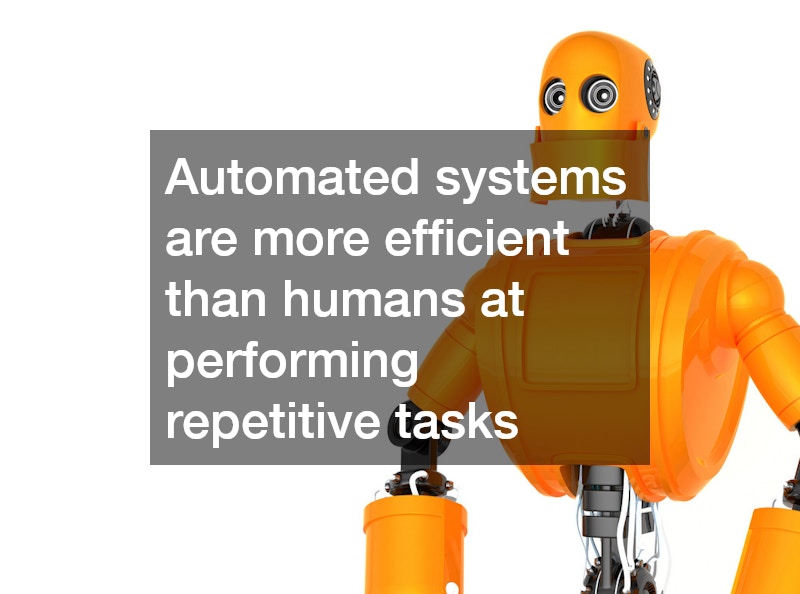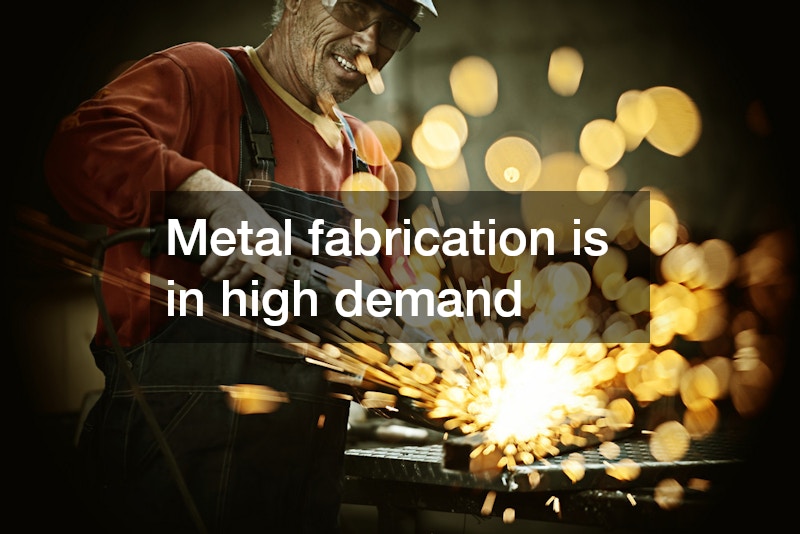Manufacturing is constantly evolving. New technologies and innovative practices are driving this evolution, increasing efficiency, precision, and sustainability. Manufacturers are finding new ways to improve their processes while meeting the demands of the modern economy. This blog will explore the technologies and practices shaping today’s manufacturing industry, including how they impact various sectors, from industrial insulation to metal fabrication.
1. The Automation Revolution: Robotics in Manufacturing

Integration of robotics and automation is one of the biggest transformations that has occurred in manufacturing. Automated systems are more efficient than humans at performing repetitive tasks, which allows manufacturers to increase their productivity and reduce errors. The robotics revolution has changed assembly lines. It is now possible to perform complex tasks more quickly and with greater precision.
Many CNC machines now have robotic arms and other automated features that streamline production. This technology is used by CNC machine shops to shape and finish materials in extreme precision. Automation not only increases efficiency, but it also lowers labor costs. It is an important component in modern manufacturing.
2. Custom Manufacturing: Meeting Unique Demands
Custom manufacturing has become increasingly important as businesses seek to create more tailored products. Custom manufacturing allows businesses to create products to meet specific requirements. This can include unique shapes and sizes, as well as specialized materials. This is especially useful in industries like automotive, aerospace, and healthcare, where precision and customization are key.
Local manufacturers play a crucial role in providing these solutions. Local coil spring manufacturers, for example, specialize in custom coil springs that can be used in a variety of applications, ranging from industrial machinery and automotive suspension systems. These manufacturers are able to meet their customers’ specific needs by offering custom solutions. They can also offer products that are reliable and functional.
3. Precision Redefined: Advanced CNC Machining
CNC (computer numerical control) machines have become the cornerstones of modern manufacturing. They offer unmatched precision and versatility. These machines can be programmed to perform tasks like cutting, drilling, and milling with amazing accuracy. CNC machine shops use this technology to create complex components and parts that meet tight tolerances. They are ideal for industries requiring precision engineering.
CNC machines are able to produce identical components with minimal variations, which ensures consistency in mass production. This level of precision can be particularly useful in industries such as aerospace where even the slightest deviation can have a significant impact.
4. Sustainable Manufacturing: Eco-Friendly Practices
Many manufacturers adopt sustainable practices in order to reduce their carbon footprint as concerns over climate change and the impact on the environment grow. The use of energy-efficient machines, recycling materials, and minimizing waste are all part of this. Manufacturers are also increasingly using renewable energy to power their operations. This reduces their environmental impact.
Metal fabricators, for example, are finding new ways to recycle scrap and reuse materials, which reduces the need to extract raw materials. Sustainability is a win-win situation for both the manufacturer and the environment.
Metal roofing is becoming increasingly popular in roofing industries due to its durability. Metal roofs are energy-efficient and highly recyclable, making them a green choice for residential and commercial properties.
5. The Metal Fabrication Advantage: Custom Solutions

Metal fabrication has also seen major advancements over the past few years. Local metal fabrication firms play an important role in the production of custom metal structures and parts for many industries, including construction and automotive manufacturing. These companies use modern tools and techniques to cut, bend, and assemble metal parts accurately.
Metal fabrication is in high demand, as are durable and high-quality materials. Metal fabricators create anything from structural beams and custom metal parts for machines using processes such as welding, cutting, or forming. Fabricators can meet diverse client needs by working with different metals such as copper, steel, and aluminum.
6. 3D Printing: The Additive Manufacturing Game-Changer
3D printing or additive manufacturing is another revolutionary technology in the manufacturing industry. The process involves layering materials like ceramics, metals, or plastics to create objects. It is especially useful for small-scale productions and prototypes since it allows manufacturers to create complex shapes and designs.
3D printing reduces waste by adding materials only where they are needed. It is a more environmentally friendly manufacturing process than traditional subtractive processes, which results in a lot of waste.
7. Essential Support: The Role of Industrial Contractors
Industrial contractors are needed to maintain and upgrade manufacturing facilities in order to ensure that they run smoothly. These contractors are experts in installation, maintenance and repair of factory equipment. They ensure that factories operate at maximum efficiency. Industrial contractors are responsible for supporting manufacturing plant infrastructure, from electrical systems to HVAC installation.
Industrial contractors help manufacturers to implement new technologies and processes in addition to maintaining their equipment. These contractors are vital for maintaining manufacturing facilities that keep up with the latest advances.
8. Insulation Innovations: Boosting Energy Efficiency
Insulation is one of the best ways to improve energy efficiency. Local industrial insulation companies offer insulation solutions to manufacturing facilities that help regulate temperatures and reduce electricity consumption. Insulation not only reduces energy costs but also increases the efficiency of equipment and machinery.
Insulation is essential in industrial settings where heat-generating machines are present. This ensures a safe, efficient and productive working environment. Insulation materials can withstand high temperatures and are therefore ideal for manufacturing plants.
9. Cutting-Edge Tools: Enhancing Production Capabilities
Modern manufacturing tools have allowed manufacturers to increase their production without compromising quality. Modern tools, from high-tech measuring devices to cutting tools, are designed to meet today’s demanding manufacturing environment. These tools enable manufacturers to produce more accurate products, create intricate designs, and work with stronger materials.
The right tools are crucial for producing high-quality products, whether it is a local coil springs company that uses custom tools to create specific springs for particular applications, or a metal fabrication firm using cutting machines.
10. Metal Roofing: A Sustainable Choice for Manufacturing
Due to its energy efficiency and low maintenance, metal roofing is becoming more popular in the construction and manufacturing industries. Metal roofs can withstand extreme weather conditions and are, therefore, ideal for residential or industrial use. Metal roofing is also highly recyclable and a great option for eco-conscious builders.
Metal roofs are a cost-effective option for industrial contractors and building owners. They provide long-lasting protection to facilities in the manufacturing sector, which reduces the need for repairs and replacements. Metal roofing is a good choice for building owners and industrial contractors because of its durability.
11. Smart Factories: The Future of Manufacturing
As manufacturers integrate advanced technologies such as artificial intelligence (AI), the Internet of Things, and machine learning in their operations, the concept of a “smart plant” is becoming more real. Smart factories use sensors and interconnected devices to track production, monitor equipment performance, and optimize processes. This level of automation allows manufacturers to react quickly to changes in demand, minimize downtime, and improve efficiency.
Manufacturers can make better decisions by leveraging AI and data. This includes scheduling production, managing inventory, and ensuring quality. The shift to smarter manufacturing has transformed the industry and enabled businesses to operate more sustainably and efficiently.
12. Collaborative Synergy: Manufacturers and Industrial Contractors
Industrial contractors and manufacturers must work together to implement new technologies and practices. Industrial contractors work closely together with manufacturers to build and maintain facilities that are tailored to the needs of their industry. These contractors can help keep manufacturing operations on track by installing new equipment, upgrading energy systems or improving the efficiency of workflow.
Contractors are used by manufacturers for routine maintenance and large-scale renovations. Working with contractors who are experienced can help manufacturers stay on top of new technologies and improve their productivity.
13. Embracing Digital Transformation: The New Manufacturing Landscape
The digital transformation of manufacturing is changing the landscape. Companies are adopting cloud computing and data analytics to improve their operations. Cloud-based systems enable manufacturers to access data in real time from anywhere. This makes it easier to monitor and respond to demand changes.
Data analytics, on the other hand, provides insight into performance metrics that help manufacturers identify areas of improvement and optimize processes. This digital approach increases manufacturing efficiency but also allows for better decision-making. Manufacturers can adapt more easily to market changes.
14. Lean Manufacturing: Maximizing Efficiency
Lean manufacturing focuses on minimizing waste and maximizing productivity. This involves optimizing processes and reducing excess inventories, as well as improving workflow efficiency. Manufacturers have adopted lean manufacturing principles to streamline operations and cut costs.
Lean manufacturing practices allow manufacturers to eliminate wasteful steps from the production process. They can also reduce lead times and improve quality. The result is a more efficient operation, which provides better value for customers.
15. Sustainability in Manufacturing: A Growing Priority
Sustainability is a priority for all manufacturers. Manufacturers are looking for ways to reduce their environmental impact, from reducing energy and waste consumption to using eco friendly materials. The shift towards sustainability is a result of both consumer demands and regulatory requirements.
To reduce their carbon footprint, manufacturers are investing more in renewable energy sources, sustainable materials and recycling programs. This effort not only benefits the environment, but also helps manufacturers to improve their reputation as corporate citizens.
In Summary
Manufacturing is experiencing rapid changes fueled by technological advancements and an increasing focus on sustainability. Modern manufacturers are constantly improving their processes to deliver better products.
Manufacturers will have to adopt new technologies and practices as the industry evolves to remain competitive. Working with industrial contractors and industrial insulation companies in your area, manufacturers can make sure that their operations are sustainable and efficient.